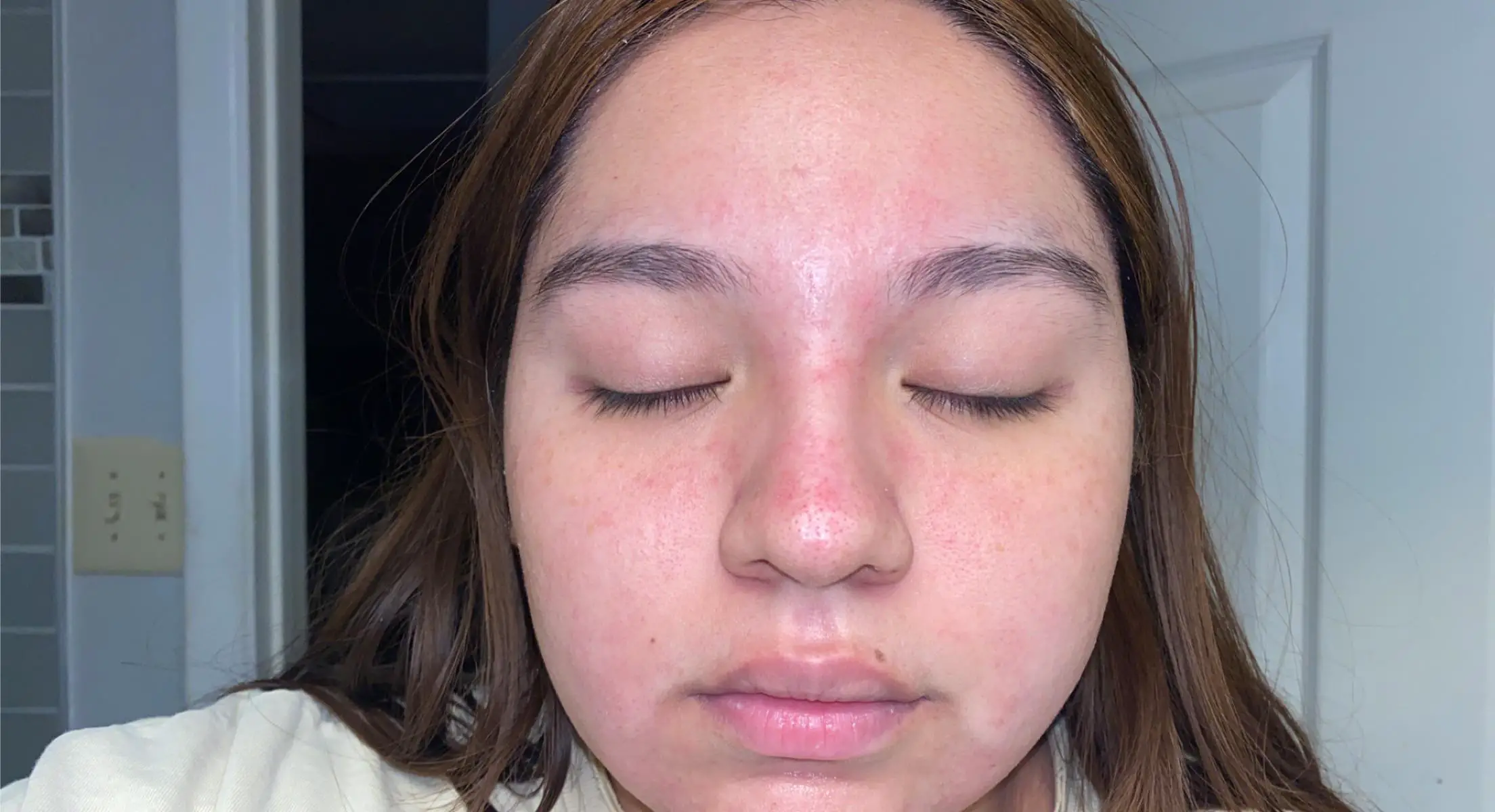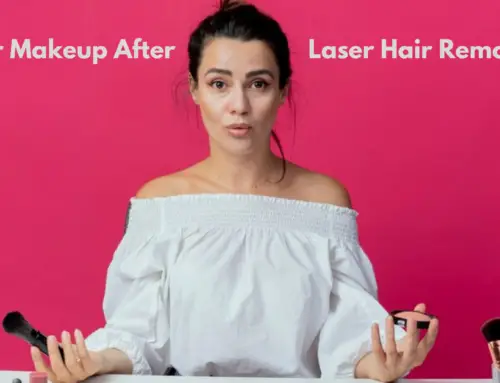When it comes to achieving a flawless makeup look, using the right tools is crucial. However, did you know that your makeup brushes may be causing acne breakouts? Yes, it’s true! Despite their importance in achieving a flawless finish, improperly cleaned or low-quality makeup brushes can harbor dirt, oil, and bacteria that can clog your pores and lead to breakouts. It’s time to take a closer look at your brush collection and ensure that they’re not sabotaging your skin.
The relationship between makeup brushes and acne is complex. First, it’s important to understand that your skin naturally produces oil and sheds dead skin cells. When these substances mix with dirt and bacteria on your brushes, they can create a breeding ground for acne-causing bacteria. Additionally, using dirty brushes can transfer oils, bacteria, and dead skin cells from your face back onto your skin, leading to clogged pores and breakouts. To prevent this, clean your brushes regularly and invest in high-quality brushes that are less likely to shed and harbor bacteria. By taking these simple steps, you can enjoy a flawless makeup look without worrying about acne breakouts.
Makeup brushes can potentially cause acne if they are not cleaned regularly. Bacteria, oil, and dead skin cells can accumulate on the bristles, leading to clogged pores and breakouts. To prevent this, it is important to clean your brushes regularly with gentle soap or brush cleanser. Additionally, avoid sharing your brushes with others and replace them if they become damaged or frayed. By maintaining clean brushes, you can reduce the risk of acne and keep your skin healthy.

Can Makeup Brushes Cause Acne?
Makeup brushes are an essential tool in every makeup lover’s kit. They help us achieve flawless application and blended finishes. However, there is one question that often surfaces: can makeup brushes cause acne? This article will delve into the relationship between makeup brushes and acne to provide you with a clear understanding of the issue.
How Makeup Brushes Can Contribute to Acne
While it’s important to note that makeup brushes themselves do not directly cause acne, they can contribute to the development or worsening of acne in certain cases. Here are a few reasons why:
- Bacteria Buildup: When we use makeup brushes, they come into contact with our skin, picking up oil, dead skin cells, and bacteria along the way. If these brushes are not cleaned regularly, this buildup can transfer back onto the skin, potentially clogging pores and leading to acne.
- Poor Quality Brushes: Cheap or low-quality makeup brushes can be rough on the skin, causing irritation and inflammation. This irritation can trigger breakouts and worsen existing acne.
- Improper Brush Cleaning: Inadequate or infrequent cleaning of makeup brushes allows for the accumulation of old makeup, oils, and bacteria. This can introduce harmful microorganisms to the skin, increasing the risk of acne.
Tips for Minimizing Acne From Makeup Brushes
Although makeup brushes can potentially contribute to acne, there are steps you can take to minimize the risk. Consider the following tips:
- Regular Cleaning: Wash your makeup brushes regularly using gentle soap or a brush cleanser. This will help eliminate bacteria and prevent buildup.
- Invest in Quality Brushes: Opt for high-quality brushes made with soft bristles that won’t irritate the skin. These brushes are typically less likely to cause acne compared to their cheaper counterparts.
- Avoid Sharing Brushes: Sharing makeup brushes can transfer bacteria and lead to acne breakouts. Stick to using your own brushes and regularly clean them.
- Use Light Pressure: When applying makeup with brushes, avoid applying excessive pressure, which can irritate the skin. Gentle, light strokes are ideal for preventing acne-related irritation.
- Replace Old Brushes: Over time, makeup brushes can deteriorate and harbor bacteria. Replace old or damaged brushes to maintain optimal brush hygiene.
Finding the Right Makeup Brush Cleansing Routine
Developing a proper makeup brush cleansing routine is crucial in preventing acne. Here are a few steps to keep your brushes clean and bacteria-free:
| Step 1 | Gently rinse the bristles of your makeup brushes under lukewarm water to remove any residual makeup. |
| Step 2 | Apply a small amount of mild soap or brush cleanser to your brushes. |
| Step 3 | Gently swirl the brushes on the palm of your hand or a cleansing mat to work up a lather. |
| Step 4 | Rinse the brushes thoroughly until the water runs clear. |
| Step 5 | Gently squeeze out the excess water and reshape the bristles. |
| Step 6 | Lay the brushes flat on a clean towel to air dry. |
| Step 7 | Store your clean brushes in a dry and clean container or brush holder. |
The Impact of Clean Makeup Brushes on Your Skin
Keeping your makeup brushes clean offers numerous benefits for your skin:
- Reduced Bacterial Transfer: By regularly cleaning your brushes, you minimize the risk of bacterial transfer to your skin, decreasing the likelihood of acne breakouts.
- Fresher Application: Clean brushes ensure that your makeup applies smoothly and evenly, helping you achieve a flawless finish.
- Improved Brush Longevity: Proper maintenance and cleaning can extend the lifespan of your makeup brushes, saving you money in the long run.
Can Proper Makeup Brush Use and Care Prevent Acne?
Using and caring for your makeup brushes correctly can significantly reduce the risk of developing acne. By following the tips mentioned above, you can maintain clean brushes and minimize bacterial transfer to your skin. Additionally, investing in high-quality brushes and practicing gentle application techniques can help prevent skin irritation and inflammation that can aggravate acne.
Key Takeaways
- Makeup brushes can contribute to the development of acne.
- Dirty makeup brushes can harbor bacteria and oil, leading to clogged pores.
- Frequent cleaning and proper care of makeup brushes can help reduce the risk of acne.
- Using clean brushes and avoiding sharing them with others can prevent the spread of acne-causing bacteria.
- Choosing brushes made with synthetic fibers can be beneficial for acne-prone skin.
Frequently Asked Questions
Here are some commonly asked questions about the effects of makeup brushes on acne:
1. Can makeup brushes cause breakouts?
Makeup brushes can potentially cause breakouts if they are not properly cleaned and maintained. When you apply makeup with a brush, it can pick up bacteria, oils, and dead skin cells from your face. If these particles are not removed from the brush, they can transfer back onto your skin the next time you use it, leading to clogged pores and breakouts. It is important to regularly clean your makeup brushes to prevent this from happening.
Cleaning your brushes at least once a week using a gentle cleanser or brush cleaner will help remove any buildup of product, bacteria, and oils. Additionally, avoid sharing your brushes with others to minimize the risk of transferring bacteria or acne-causing agents.
2. How often should I clean my makeup brushes?
As mentioned earlier, it is recommended to clean your makeup brushes at least once a week. However, the frequency of cleaning may vary depending on how often and how much makeup you use. If you use your brushes daily or wear heavy makeup, you may want to clean them more frequently to maintain optimal hygiene.
Regular cleaning not only helps prevent breakouts but also keeps your brushes in good condition and ensures the makeup is applied smoothly and evenly.
3. What is the best way to clean makeup brushes?
The best way to clean makeup brushes is to start by running the bristles under warm water to rinse off any excess product. Then, use a gentle cleanser or brush cleaner to thoroughly clean the bristles. Gently swirl the brush in the cleanser, working it into a lather, and then rinse until the water runs clear.
After washing, reshape the brush bristles and lay the brushes flat on a clean towel to dry. Avoid drying them upright as this can cause water to seep into the ferrule (the metal part that holds the bristles), which can loosen the glue and damage the brush. Allow the brushes to air dry completely before using them again.
4. Are synthetic or natural bristle brushes better for acne-prone skin?
Both synthetic and natural bristle brushes can be suitable for acne-prone skin, as long as they are cleaned regularly. Synthetic brushes, made from artificial fibers, tend to be easier to clean and less likely to harbor bacteria compared to natural bristle brushes.
However, natural bristle brushes, made from animal hair, can be gentle and provide a smoother application for certain types of makeup. If you prefer using natural bristle brushes, just make sure to clean them diligently to prevent the buildup of bacteria and oils that can contribute to acne.
5. Can using dirty makeup brushes worsen existing acne?
Using dirty makeup brushes can potentially worsen existing acne. When you apply makeup with a dirty brush, you are essentially applying bacteria, oils, and dead skin cells onto your skin. This can clog your pores and further inflame existing acne, making it appear more red and irritated. So, it is essential to keep your brushes clean to minimize the risk of worsening your acne.
Regular cleaning and maintenance of your makeup brushes are crucial for maintaining clean and healthy skin.

Can Dirty Makeup Brushes Cause Acne? Pimples? Breakouts? Zits? Diamondsandheels14 Cassandra Bankson
Makeup brushes can contribute to acne if not properly cleaned and maintained.
The accumulation of dirt, oils, and bacteria on brushes can clog pores and lead to breakouts.
Regularly washing brushes with gentle shampoo and allowing them to fully dry can reduce the risk of acne.
Choosing brushes with synthetic bristles and avoiding sharing brushes can also help prevent breakouts.
Overall, keeping makeup brushes clean and being mindful of hygiene practices can minimize the likelihood of acne caused by brushes.






Leave A Comment